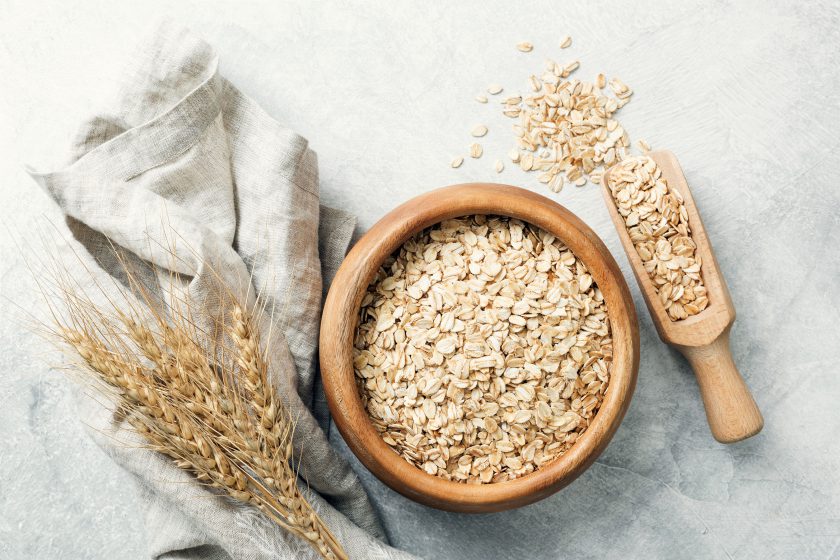You probably already know that oatmeal is healthy, and perhaps you’ve been told it “sticks to your ribs.” Plus, it’s a great staple food to keep on hand if you’re not shopping for groceries as often. But what’s the science behind oatmeal’s healthy history?
Oatmeal can keep you full
Avoid a mid-morning hunger attack, and you’ll be less tempted to pick up a donut. Oatmeal contains a special kind of fiber known as oat beta glucan. These beta glucans can increase levels of certain hormones that may help control appetite.
Oatmeal helps digestion
Oatmeal’s soluble fiber content is widely recommended to help keep bowels running smoothly. Regular intake of fiber-rich foods, like oatmeal, can help avoid bloating and uncomfortably hard stools.
Oats can improve cholesterol
High cholesterol is a major risk factor for heart disease. Studies have shown that eating oats regularly can lower “bad” LDL cholesterol due to its oat beta glucan fiber.
Eating Gluten-Free?
Even if you eat a gluten-free diet, oats can be a healthy choice. They contain B vitamins and magnesium, which may be lacking in many people who don’t eat gluten. Look for oats labeled “gluten free” to avoid any gluten contamination that could happen during processing.
Tips if you don’t like oatmeal
Oatmeal can be eaten a variety of ways, so don’t rule it out if you haven’t enjoyed it in the past. Far beyond apple cinnamon and other sugary flavor packets often found in the supermarket, you can try it savory, add it to other foods, or even eat it for dinner!
Consider these ideas:
- Add oats to turkey burgers or meatloaf to stretch your meat further and add health benefits
- Sprinkle oats over baked apples for a healthy “apple crisp”
- Use oats in casseroles or dinner rolls
Sources: Oldways Whole Grains Council, Academy of Nutrition and Dietetics

